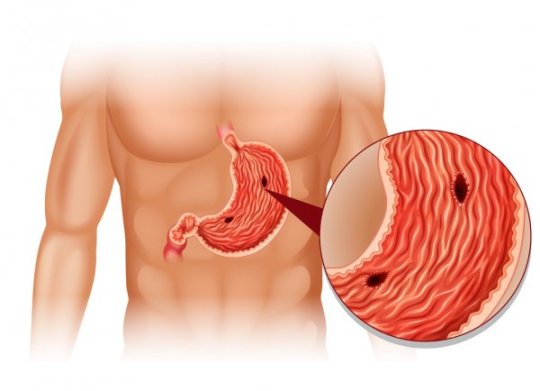Text
Natural Treatment for Ulcers:
Alternative treatments can relieve symptoms and promote healing of ulcers. A primary goal of these treatments is to rebalance the stomach’s hydrochloric acid output and to enhance the mucosal lining of the stomach. Food allergies have been considered a major cause of stomach ulcers. An elimination/challenge diet can help identify the allergenic food(s) and continued elimination of these foods can assist in healing the ulcer.

https://health2daytips.blogspot.com/2020/08/natural-treatment-for-ulcers.html
0 notes
Text
Best Nuts for Weight Loss:
Eating nuts like cashew nuts and salted almonds are associated with weight gain because of their high calorie and fat content. But recent research has shown that nuts are packed with nutrients and good fats, which help boost overall health. Nuts, when had in moderation, make for a healthy snack option and even help you lose weight. A 2017 study published in the European Journal of Nutrition that evaluated the diet of Europeans across 10 countries between the ages of 25 and 70 found that eating nuts aided in weight loss. So, which are the nuts that you should eat for weight loss? Let’s find out.
https://health2daytips.blogspot.com/2020/09/best-nuts-for-weight-loss.html
0 notes
Text
Celery Juice Amazing Benefits:
The greatest value of raw celery lies in the fact that it contains an exceptionally high percentage of vital organic sodium. It is one of the chemical properties of sodium to maintain calcium in solution. This is particularly the case in the human system, as we will presently see. Raw celery contains more than four times as much vital organic sodium as it does calcium. This fact makes it one of the most valuable juices for people who have used concentrated sugars and starches more or less consistently all their lives. Bread, biscuits, cakes, cereals, doughnuts, spaghetti, rice—in fact, every food and food product containing flour—comes under the classification of concentrated starch. White, brown, and every kind of sugar which has been manufactured or processed, and every food product containing any of it (including candies, "soft drinks," commercial ice creams, etc.), come very definitely under the classification of concentrated carbohydrates.
Experience has definitely taught us, however, that such foods are destructive, and their continued use results in a nourishment deficiency. What follows is an alarming number of ailments. We have found that such concentrated carbohydrates are without question among the most destructive of our "civilized" foods. The human digestive processes were never intended by Nature to be called upon to convert these so-called foods into nourishment for the cells and tissues of the body. Even from before adolescence, the results of such food are apparent in the degeneration of the human system. To consider the brief span of two or three score years as constituting old age is nothing less than a downright insult to Nature and to our Creator.
It is a shameful admission that we do not know how to live and have not taken the trouble to learn the first principles of regenerating our body. It is a confession that we eat ourselves into the grave by catering to our appetites. In the first place, calcium is one of the most essential elements in our diet; but it must be consumed organically, and through vitally ORGANIC atoms. When any calcium-containing food is cooked or processed, as in any of the above-mentioned carbohydrate foods, the calcium is automatically converted into INORGANIC atoms. As such, they are not soluble in water and they cannot furnish the nourishment which the cells in our body require for regeneration. Furthermore, enzymes destroyed at temperatures of I30°F and above, convert the atoms into dead matter. The result is that such foods literally clog up the system resulting in conditions as arthritis, diabetes, coronary (heart) disturbances, varicose veins, hemorrhoids, gall and kidney stones.
In the second place, these deposits of inorganic calcium, being void of life, increase cumulatively when nothing is done to rid the body of them. In the presence of vital organic sodium, however, they can be dislodged and maintained in the solution until they have been eliminated from the system Sodium plays a very important part in the physiological processes of the body. One of the most important being the maintenance of the fluidity of the blood and lymph in preventing they're becoming too thick.
The only sodium that is of any value in this respect, however, is the vital ORGANIC sodium which is derived from fresh vegetables and some fruits. The "regular" Table Salt is composed of insoluble inorganic elements. Varicose veins, hardening of the arteries and other ailments have been traced to the excessive use of this type of salt. Salt is necessary for the generation and functions of digestive fluids in the system. Without salt good digestion is virtually impossible, but such salt must be entirely soluble in water. Every cell in the body is constantly bathed in a solution of saline water, and if this is not maintained at its required level dehydration sets in.
During hot, dry weather, we should find it most soothing and comforting to drink a tumbler full of fresh-raw celery juice during the morning and another in the afternoon between meals. This has the effect of normalizing the body temperature, with the result, that we are perfectly comfortable while those around us are drenched in perspiration and sweltering in discomfort.
Sodium is one of the important elements in the elimination of carbon dioxide from the system. Deficiency of vital organic sodium results in bronchial and lung troubles, which are aggravated by the presence of extraneous matter in the lungs, such as tobacco smoke. Such deficiency is one of the concomitant causes of premature aging, particularly in women. As a matter of fact, women who smoke age about 15 years during every 5 years in which they smoke.
Nicotine is to a great extent the cause of so-called "frayed nerves." Smoking does not in any way alleviate, but rather aggravates this condition. The use of tobacco creates only a temporary state of mental well-being at the cost of more or less permanent degeneration of tissues, though of course, advertising speaks falsely to the contrary. Tobacco smoke has the effect of inhibiting the taste buds. The combination of celery with other juices is generally beneficial, and certain formulas have been used to help clear up the deficiency and other conditions in the body, with almost phenomenal results. When combined with other juices, the proportion of the elements in each individual juice is, of course, changed to correspond to the sum total of the similar elements in the other juices. Thus we get a totally different formula when juices are combined then we have in any one of the juices individually. It is the discovery of the effect of these combinations and formulas that have proved of such immeasurable benefit to ailing humanity from the cradle to the grave.
In the case of nervous afflictions resulting from the degeneration of the sheathing of the nerves, the abundant use of carrot and celery juice has helped to restore these to their normal condition and thus alleviate or remove the affliction. Celery is very high in magnesium and iron content, a combination which is invaluable as a food for the blood cells. Many diseases of the nervous and blood system are due chiefly to the inorganic mineral elements and salts are taken into the body by means of devitalized foods and sedatives. If there is an inadequate supply of sulfur, iron, and calcium in the diet, or even if there is an abundant supply of these, but in devitalized inorganic form, then asthma, rheumatism, hemorrhoids, and other disturbances may result. Unbalanced proportions of sulfur and phosphorus in the diet may create conditions of mental irritability, neurasthenia, and even insanity. Also, many diseases hitherto ascribed to excessive uric acid in the system may really be caused by the consumption of foods too rich in phosphoric acid and deficient in sulfur.
The combination of carrot and celery juices furnishes a balance of these organic minerals in excellent combination to combat tendencies toward these diseases and help to restore the body to normalcy where these afflictions have started or taken root.

0 notes
Text
Caffeine; what you should know about it:
Caffeine is a drug that stimulates the central nervous system (CNS). Caffeine is found naturally in coffee, kola seed kernels or nuts, and a variety of teas. Other foods and beverages, such as chocolate and soft drinks, also contain caffeine, and the drug can be purchased in over-the-counter tablet and capsule form (No-Doze, Overtime, Pep-Back, Quick-Pep, Caffeine, and Vivarin). Some prescription pain relievers, medicines for migraine headaches, and antihistamines, also contain caffeine.
Caffeine makes people more alert and less drowsy and improves one’s coordination. It is sometimes included in athletes’ diets to improve physical performance. In addition, one study found that older people who were given a cup of caffeinated coffee in the morning had fewer late-day memory problems than those who were given decaffeinated coffee. Combined with certain pain relievers or medicines for treating migraine headache, caffeine enables those drugs to work more quickly and effectively. Caffeine alone can also help relieve headaches. Antihistamines are sometimes combined with caffeine to counteract the drowsiness caused by these drugs. Caffeine is also sometimes used to treat other conditions, including breathing problems in newborns and in young babies after surgery.
People should avoid taking too much caffeine as an over-the-counter drug. It is important for individuals to consider how much caffeine is being taken in from coffee, tea, chocolate, soft drinks, and other foods. It is advisable to check with a pharmacist or healthcare professional to find out how much caffeine is safe to use. Caffeine cannot replace sleep and should not be used regularly to stay awake as the drug can lead to more serious sleep disorders, such as insomnia.
People who use large amounts of caffeine over long periods build up a tolerance to it. When that happens, they have to use more and more caffeine to get the same effects. Heavy caffeine use can also lead to dependence. If an individual stops using caffeine abruptly, withdrawal symptoms may occur, including headache, fatigue, drowsiness, yawning, irritability, restlessness, vomiting, or runny nose. These symptoms can go on for as long as a week. In addition, caffeine dependence is not confined to the adult population.
Studies have shown that American teenagers have a high rate of caffeine dependence, partly because they consume large amounts of carbonated beverages that contain caffeine. If taken too close to bedtime, caffeine can interfere with sleep. Even if it does not prevent a person from falling asleep, it may disturb sleep during the night.
The notion that caffeine helps people become sober after drinking too much alcohol is a myth. In fact, using caffeine and alcohol together is not a good idea. The combination can lead to an upset stomach, nausea, and vomiting.
Older people may be more sensitive to caffeine and thus more likely to have certain side effects, such as irritability, nervousness, anxiety, and sleep problems. Research also suggests that people with insulin-dependent diabetes should monitor their caffeine intake. One study found that caffeine appears to decrease insulin sensitivity by about 15%.
Medication conditions with caffeine:
Allergies: Anyone with allergies to foods, dyes, preservatives, or to the compounds aminophylline, dyphylline, oxtriphylline, theobromine, or theophylline should check with a physician before using caffeine. Anyone who has ever had an unusual reaction to caffeine should also check with a physician before using it again.
Pregnancy: Caffeine can pass from a pregnant woman’s body into the developing fetus. Although there is no evidence that caffeine causes birth defects in people, it does cause such effects in laboratory animals given very large doses (equal to human doses of 12–24 cups of coffee a day). In humans, evidence exists that dose of more than 300 mg of caffeine a day (about the amount of caffeine in two to three cups of coffee) may cause miscarriage or problems with the baby’s heart rhythm. Women who take more than 300 mg of caffeine a day during pregnancy are also more likely to have babies with low birth weights. Any woman who is pregnant or planning to become pregnant should check with her physician before using caffeine.
Breast-feeding: Caffeine passes into breast milk and can affect the nursing baby. Nursing babies whose mothers use 600 mg or more of caffeine a day may be irritable and have trouble sleeping. Women who are breast-feeding should check with their physicians before using caffeine.
Other medical conditions are the following:
Caffeine may cause problems for people with these medical conditions
Peptic ulcer, heart arrhythmias or palpitations, heart disease or recent heart attack (within a few weeks), high blood pressure, liver disease, insomnia (trouble sleeping), anxiety or panic attacks, agoraphobia (fear of being in open places), premenstrual syndrome (PMS).
At recommended doses, caffeine can cause restlessness, irritability, nervousness, shakiness, headache, lightheadedness, sleeplessness, nausea, vomiting, and upset stomach. At higher than recommended doses, caffeine can cause excitement, agitation, anxiety, confusion, a sensation of light flashing before the eyes, unusual sensitivity to touch, unusual sensitivity of other senses, ringing in the ears, frequent urination, muscle twitches or tremors, heart arrhythmias, rapid heartbeat, flushing, and convulsions.
Using caffeine with certain other drugs may interfere with the effects of the drugs or cause unwanted— and possibly serious—side effects. Certain drugs interfere with the breakdown of caffeine in the body. These include oral contraceptives that contain estrogen, the antiarrhythmic drug mexiletine (Mexitil), the ulcer drug cimetidine (Tagamet), and the drug disulfiram (Antabuse), used to treat alcoholism.
Caffeine interferes with drugs that regulate heart rhythm, such as quinidine and propranolol (Inderal). Caffeine may also interfere with the body’s absorption of iron. Anyone who uses iron supplements should take them at least an hour before or two hours after using caffeine.

1 note
·
View note